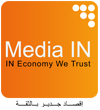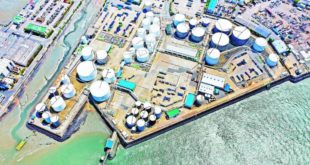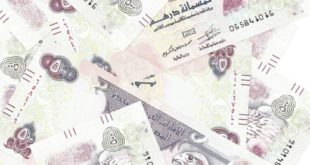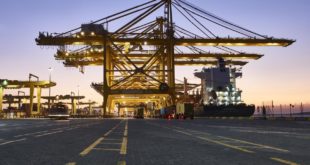Business conditions in UAE non-oil private sector firms improved at a sharp and accelerating rate in April 2023, according to the latest PMI data, driven by the fastest growth in new business since November 2021. Firms responded by sharply increasing production and increasing their inventories and stock levels. have employment.
Increased customer demand stemmed in part from a strong decline in selling prices, the strongest decline on record since September 2020, helped by easing cost pressures.
The headline Purchasing Managers’ Index (PMI) for the UAE, affiliated to S&P Global, increased from 55.9 in March to 56.6 in April, indicating a strong improvement in the performance of the non-oil economy.
It is worth noting that the index was only lower than the post-epidemic peak recorded in August last year of 56.7 points, and this rise was mainly driven by the exponential increase in new business flows.
New orders
In fact, the New Orders Index rose to its highest level since November 2021 in April, as improved market conditions and increased customer demand underpinned the strong sales performance. Just over 30% of firms saw a rebound in new orders since the previous study period, compared to 7 that saw a decline.
The improvement in demand focused on the domestic market, as companies did not record any change in foreign sales since the end of the first quarter.
A number of surveyed firms indicated that the increase in new order volume was supported by increased promotional quotations in April. In fact, the rate of sale price reduction accelerated to its highest level in just over two and a half years, as companies looked to attract sales in highly competitive market conditions.
Relatively mild price pressures helped depress selling prices, as input costs rose only marginally, at the weakest pace in three months. Meanwhile, production levels across the non-oil economy expanded at their highest rate in six months in April, as a sharp rise in new business boosted activity growth. The employment rate was also above the long-term average, as companies commented on efforts to cope with high workloads and reduce pressures on productive capacity.
These expansions limited the growth in backlogs, which fell to the slowest level in the 22-month backlog of backlogs. On the other hand, strong hiring led to an increase in staffing costs which, although marginal, was the fastest in nine months.
Confidence improved
Improved demand conditions contributed to improving buying and confidence levels during the month of April. On the purchase side, the latest data indicated a strong increase in the purchase of production inputs, which was sharper than in the previous month. This helped lead to a strong rise in total inventories that was slightly weaker than March’s five-year high. The build-up of stock has been aided by the strong and rapid improvement in delivery times for production inputs, with many companies reportedly asking their suppliers to expedite deliveries.
Expectations that demand will continue to rise strongly led to optimism about future activity rebounding in April at the highest rate in seven months. Improving economic conditions, increased construction activity and increased marketing spending were also cited as reasons for the optimistic outlook.
Stronger expansion
David Owen, chief economist at S&P Global Market Research, said: “The UAE PMI rose for the third consecutive month in April to point to a stronger rate of expansion for the non-oil economy, driven by rapidly increasing new orders and easing inflation pressures. A relatively small increase in business expenses encouraged a number of companies to introduce price promotions, which helped boost sales at the steepest rate since late 2021. Growth also benefited from efforts to improve services and enhance marketing, panelists said, and helped expand strong in action.”
He added, “Companies continued their efforts to increase production capacities, which led to another strong expansion in stocks of production inputs. The number of employees has also increased. While the job creation rate was slower than the seven-year high recorded in March, it was still stronger than the study average. The increased demand and the rapid improvement in production capacity helped increase confidence in future activity for the fourth consecutive month, reaching its strongest level since September 2022.
 Media ININ Economy We Trust
Media ININ Economy We Trust








